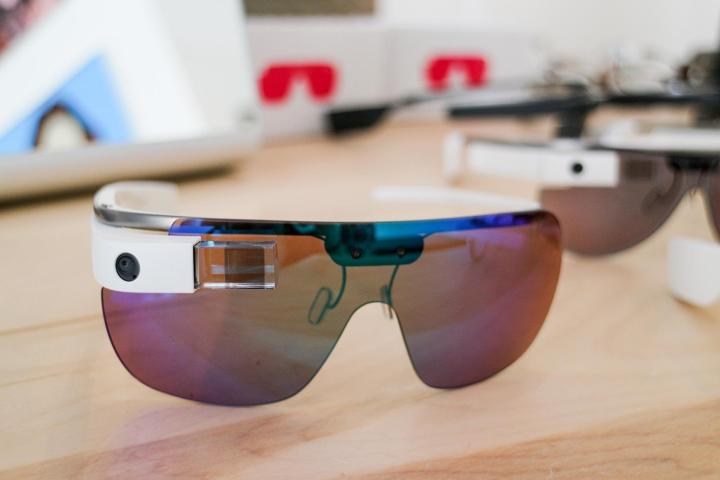
The two organizations approved the new rule during its annual ShowEast gathering in Florida. Up to now, a number of theaters already have notices banning such devices, but this new stipulation goes countrywide, affecting all 32,000 of NATO’s screens.
The move is designed to prevent individuals, or even organized gangs, from recording blockbusters that could then be distributed illegally via the Internet or by other means.
While it’s true that Glass’s battery isn’t yet powerful enough to keep Google’s face-based computer chugging along in video mode for the entire duration of a movie, it may be that the MPAA and NATO simply want to make its position clear ahead of a time when Glass – or some competing device – comes with more powerful technology. Either that or it envisages several Glass units recording a movie in a coordinated piracy session, which could be later stitched together.
In a joint statement, the MPAA and NATO said that while they have “a long history of welcoming technological advances and recognize the strong consumer interest in smartphones and wearable ‘intelligent’ devices,” they’ve nevertheless taken the decision to include wearables such as Glass in their list of banned devices as they continue with efforts to prevent piracy.
The statement continued: “Individuals who fail or refuse to put the recording devices away may be asked to leave. If theater managers have indications that illegal recording activity is taking place, they will alert law enforcement authorities when appropriate, who will determine what further action should be taken.”
At the start of this year a Cleveland, Ohio man was booted out of an AMC theater for wearing Glass. The bizarre episode saw him detained for more than three hours by the Department of Homeland Security, who suspected he may have been part of an illegal movie-recording ring.
He was eventually let go after the questioning officers were satisfied he’d done nothing wrong.
[Via Variety]


